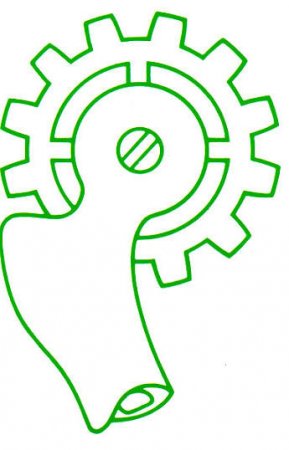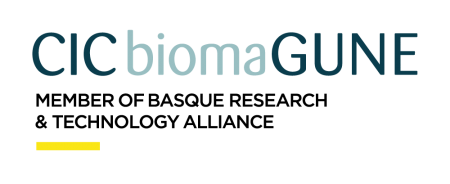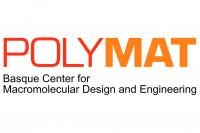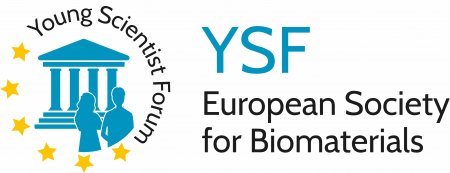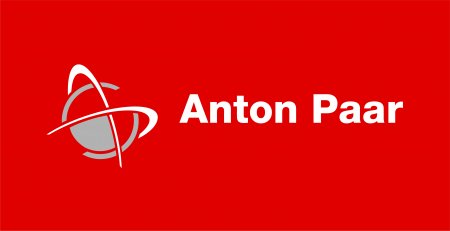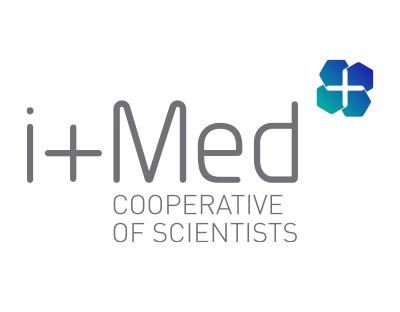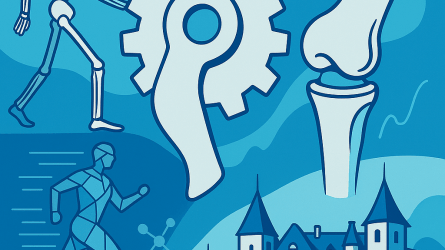
XLVII Congreso Internacional de la Sociedad Ibérica de Biomecánica y Biomateriales
Descripción
¡La convocatoria para el envío de resúmenes ya está abierta!
Donostia–San Sebastián acogerá la XLVII Edición del Congreso de la Sociedad Ibérica de Biomecánica y Biomateriales, los días 6 y 7 de noviembre de 2025.
Envianos tu contribución empleando la plantilla de resúmenes a la siguiente dirección de correo electrónico: sibb2025donostia@gmail.com
Este año, el congreso abordará las tres áreas principales de la Sociedad: Biomateriales, Biomedicina y Biomecánica deportiva. El evento ofrecerá a los investigadores un foro dinámico para presentar sus contribuciones científicas más recientes y fomentar debates enriquecedores en el ambiente cálido y colaborativo que siempre ha caracterizado a nuestro congreso. Nuestro objetivo es organizar un evento altamente participativo e interdisciplinar, que abarque una amplia variedad de temas en la intersección entre los biomateriales, la biomedicina y la biomecánica deportiva.
Nos complace darles la bienvenida a Donostia–San Sebastián, una ciudad que combina un rico ecosistema científico y tecnológico con un patrimonio cultural y natural excepcional. Con centros de investigación de primer nivel, universidades y empresas líderes en ciencia de materiales y ciencias biomédicas, Donostia es el lugar ideal para celebrar esta edición del congreso. Su carácter innovador y su fuerte compromiso con la excelencia científica reflejan nuestra misión de fomentar la colaboración interdisciplinar y el intercambio de conocimientos.
El congreso se celebrará en el impresionante Palacio de Miramar, y contará con un programa completo de dos días que incluirá conferencias plenarias, sesiones orales, presentaciones de pósteres y actividades especialmente diseñadas para apoyar y conectar a Jóvenes Investigadores de distintas disciplinas y etapas profesionales.
Nos complace confirmar la participación de Sandra Camarero (POLYMAT), Manuel Mazo (CIMA), Francesco Capuano (Universidad Politécnica de Cataluña), y Jose Muñoz (Universidad Politécnica de Cataluña) como ponentes invitados.
Próximamente se anunciarán más ponentes invitados, ¡permanece atento a las novedades!
El Comité Científico está compuesto por:
- Juan García López (Universidad de León)
- Alba Herrero Molleda (Universidad de León)
- Archit Navandar (Universidad Politécnica de Madrid)
- Javier Rueda Ojeda (Universidad Politécnica de Madrid)
- Marina Gil Calvo (Universidad de León)
- Francesca Perin (POLYMAT)
- Gail A. Vinnacombe-Wilson (CICbiomaGUNE)
- Sophia Caroline Bittinger (CICbiomaGUNE)
- Clara García Astrain (POLYMAT)
- Dorleta Jiménez de Aberasturi (CIC biomaGUNE)
- Gil Serrancolí (Universidad Politécnica de Cataluña)
- Enrique Navarro Cabello (Universidad Politécnica de Madrid)
Las actividades para Jóvenes Investigadores serán organizadas por:
- Nieves Cubo (Universidad de Nebrija)
- Andreia Pereira (I3S – Instituto de Investigação e Inovação em Saúde, Portugal)
- Ana M. Muñoz Mateo (POLYMAT)
¡Esperamos darte la bienvenida en Donostia–San Sebastián en 2025!
FECHAS IMPORTANTES
- Límite para el envío de resúmenes: 15/09/2025
- Aceptación de resumenes: 6/10/2025
- Fin del registro anticipado: 10/10/2025
- Cierre de registro: 23/10/2025
PREMIO MEJOR COMUNICACIÓN Y BOLSA DE VIAJE
La SIBB otorgará premios a las mejores comunicaciones presentadas por jóvenes investigadores. Se concederá un Primer Premio dotado con 600 € y dos accésits de 150 € cada uno, con la condición de que los galardonados envíen un artículo a la revista de la Sociedad de Biomecánica. Además, se ofrecerán tres becas de viaje, cada una con una dotación de 300 €, para facilitar la asistencia al congreso.
Objetivos
- Intercambiar resultados, experiencias y comunicaciones científicas en los campos de los biomateriales, la biomedicina y la biomecánica deportiva.
- Generar un espacio de discusión sobre los últimos avances en las diferentes áreas de la Sociedad Ibérica de Biomecánica y Biomateriales.
- Promover la investigación multidisciplinar y el intercambio de conocimientos.
- Crear un punto de encuentro para investigadores del ámbito académico e industrial en distintas etapas de su carrera.
- Involucrar a jóvenes investigadores para fomentar la colaboración y el intercambio de conocimientos entre la nueva generación de científicos en biomateriales, biomedicina y biomecánica deportiva.
- Ofrecer un entorno acogedor para compartir investigaciones e ideas a través de ponencias orales, sesiones de pósteres y actividades sociales.
Público objetivo al que está dirigida la actividad
- Alumnado universitario
- Profesionales
Metodología
El Young Scientist Forum (YSF) de la European Society for Biomaterials patrocina una serie de actividades destinadas a fomentar la comunicación científica y la colaboración entre investigadores en etapas tempranas de su carrera. El programa incluirá una combinación de sesiones de mentoría científica, en las que investigadores senior ofrecerán orientación sobre el desarrollo profesional y estrategias de investigación, junto con actividades de networking interactivas diseñadas para facilitar el diálogo y la colaboración entre instituciones y disciplinas. Además, se organizarán eventos sociales y recreativos para crear un entorno informal donde los participantes puedan construir relaciones significativas más allá de las interacciones académicas, fortaleciendo el sentido de comunidad dentro del ámbito de la biomecánica y los biomateriales.
Directoras/es
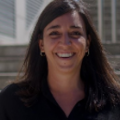
Clara García Astrain
POLYMAT
Clara García Astrain es investigadora Ikerbasque en POLYMAT, donde centra su trabajo en el desarrollo de polímeros funcionales para aplicaciones en biodetección. Obtuvo su doctorado en Ingeniería de Materiales Renovables por la Universidad del País Vasco (UPV/EHU), durante el cual realizó una estancia de investigación en el Karlsruhe Institute of Technology (KIT, Alemania), especializándose en hidrogeles nanocompuestos para aplicaciones biomédicas. Tras completar su doctorado, llevó a cabo una estancia postdoctoral en el Institut de Chimie et Procédés pour l’Énergie, l’Environment et la Santé (ICPEES) de la Universidad de Estrasburgo (Francia). A su regreso al País Vasco, trabajó en BCMaterials (Leioa, Bizkaia) y posteriormente en CIC biomaGUNE (Donostia-San Sebastián, Gipuzkoa) como investigadora Juan de la Cierva. En 2024 se incorporó a POLYMAT, donde continúa su investigación en la intersección entre la ciencia de materiales y la bioingeniería, enfocándose en la integración de sensores en modelos celulares 3D para la monitorización in situ de procesos biológicos.

Dorleta Jimenez de Aberasturi Arranz
CICbiomaGUNE
Dorleta Jiménez de Aberasturi es Profesora Asociada Ikerbasque y Becaria Ramón y Cajal que lidera el grupo de Materiales Híbridos Biofuncionales en el CIC biomaGUNE desde 2023. Dorleta se licenció en la Universidad del País Vasco (UPV/EHU) en 2006. En 2013 se doctoró en cotutela entre la UPV/EHU y la Philipps University of Marburg bajo la supervisión conjunta del Prof. T. Rojo, la Dra. I. Ruiz de Larramendi y el Prof. W. Parak. Se formó como postdoc en el grupo del Prof. L. Liz-Marzán, especializándose en la síntesis y funcionalización de nanopartículas plasmónicas coloidales. Tiene una amplia experiencia en materiales nanoestructurados híbridos para bioaplicaciones. Su grupo se centra en el desarrollo de materiales híbridos funcionales para la biofabricación de modelos dinámicos 3D in vitro y en el desarrollo de agentes de contraste y/o biosensores para comprender dichos modelos y diferentes procesos biológicos.
Ponentes
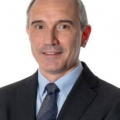
Conrado Aparicio Bádenas
Universitat Politècnica de Catalunya (UPC)-BarcelonaTech
Dr. Aparicio is Group Leader of the Bioinspired Oral Biomaterials and Interfaces (BOBI) Lab and ICREA Research Professor at the Dpt. of Materials Science and Engineering of the UPC-Technical University of Catalonia since September 2024. Dr. Aparicio is materials engineer by training. He started his academic career at UPC, but moved to University of Minnesota (UMN) where he spent 12+ years in the Dpt. of Restorative Sciences and was Deputy Director of the Minnesota Dental Research Center for Biomaterials and Biomechanics. He returned to Barcelona as FBA fellow at UIC Barcelona–Universitat International de Catalunya, where he was Vice-rector for Research, Innovation and Knowledge Transfer and director of the Study and Control of Oral Infections Research Group. He is also associated researcher at IBEC-Institute for BioEngineering of Catalonia and elected fellow of AIMBE-American Institute for Medical and Biological Engineering. Prof. Aparicio has published 150+ research papers and has lectured around the World on biomineralization and bioactivation of synthetic biomaterials for reparative and regenerative dentistry and medicine. He is co-inventor of multiple patents, one of them licensed and marketed by a dental implant company.

Sandra Camarero Espinosa
Dr Camarero-Espinosa is an Ikerbasque Fellow and PI at the POLYMAT institute where she stablished the BioSmarTE group in 2021. The group activities focus on the regeneration of complex tissues through the design of smart implantable scaffolds. This passes through the design of stimuli responsive systems, the exploitation of techniques such as 3D (bio)printing and the understanding of stem cell processes and their interactions with biomaterials. Sandra obtained her PhD degree in 2015 in Polymer Chemistry and Bioengineering from the Adolphe Merkle Institute (Fribourg, Switzerland) and was recognized with an award for an outstanding PhD thesis by the Swiss Chemical Society. After gaining an early post-doctoral fellowship from the Swiss National Science Foundation, in 2015 she moved to Brisbane (Australia) to work at the AIBN Institute (Australian Institute for Bioengineering and Nanotechnology, University of Queensland) where she continued her research in instructive biomaterial scaffolds and their interaction with stem cells. She then joined in 2017 the MERLN institute at Maastricht University (The Netherlands) where she focused her studies on the fabrication of 3D printed scaffolds for the regeneration of complex tissues.

Francesco Capuano
Universitat Politècnica de Catalunya
Francesco Capuano is a Serra Húnter Assistant Professor in the Department of Fluid Mechanics at the Polytechnic University of Catalonia (UPC). He earned his degree in Aerospace Engineering from the University of Naples "Federico II" in 2011, where he also completed his PhD in 2015. He has held postdoctoral research positions at the University of Naples (2015–2020) and the Politecnico di Bari (2021), and was a visiting researcher at Stanford University (2014) and a postdoctoral research associate at George Washington University (2017–2018). His research centers on the development of robust, high-fidelity computational methods for modeling and analyzing multiscale and multiphysics phenomena in engineering and biological systems. He places particular emphasis on scale-resolving simulations of turbulent flows, cardiovascular biomechanics, and biological fluid dynamics. Currently, he serves as principal investigator or co-investigator on several projects focused on advanced, physics-compatible numerical methods for the Navier-Stokes equations, in silico and in vivo analysis of cardiovascular flows, microplastic aggregation in the oceans, and biofilm formation under turbulent flow conditions.

Markel Dieguez Pereira

Pablo Floria Martín
Universidad Pablo de Olavide
Pablo Floría es profesor de Biomecánica Deportiva en la Universidad Pablo de Olavide (Sevilla), doctor en Ciencias de la Actividad Física y del Deporte por la Universidad Autónoma de Madrid. Su línea principal de investigación se centra en el análisis de la variabilidad del movimiento y la coordinación, con especial atención a su aplicación en la carrera a pie. Es miembro activo de la International Society of Biomechanics in Sports (ISBS), participando regularmente en sus congresos, y forma parte del comité editorial de la revista Sports Biomechanics. Está especialmente interesado en la incorporación de nuevas metodologías y tecnologías aplicadas a la biomecánica del deporte. En su intervención en el congreso, compartirá su experiencia en el análisis de la coordinación como herramienta para optimizar el rendimiento deportivo desde una perspectiva biomecánica.

Marina Gil Calvo
Profesora Permanente Laboral en el Departamento de Educación Física y Deportiva de la Universidad de León (España). Obtuvo su Licenciatura en Ciencias de la Actividad Física y del Deporte en la Universidad de León (2013) y su Doctorado en Actividad Física y del Deporte en la Universitat de València (2018). Actualmente forma parte del grupo de investigación Análisis de Movimiento Humano, Rendimiento Deportivo y Salud (AMREDyS) de la Universidad de León, y colabora activamente con el Grupo de Investigación en Biomecánica Aplicada al Deporte (GIBD) de la Universitat de València y con el grupo iHealthy del IIS Aragón, asociado a la Universidad de Zaragoza. Su línea de investigación se centra en la biomecánica deportiva y el análisis del movimiento humano, incluyendo el estudio de parámetros fisiológicos como la temperatura superficial de la piel mediante termografía infrarroja, variables cinemáticas y cinéticas, percepción de confort y fatiga. Ha participado en numerosos proyectos de investigación financiados, tanto públicos como privados, a nivel regional, nacional e internacional, orientados al rendimiento deportivo —especialmente en la validación de equipamiento deportivo (por ejemplo, plantillas y prendas de compresión)
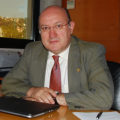
Xavier Gil Mur
UPC
El Prof. Xavier Gil Mur ha realizado destacadas contribuciones en el desarrollo de biomateriales para la sustitución de tejidos duros, implantes dentales, aleaciones superelásticas y con memoria de forma, materiales bioactivos y osteoinductivos. Su investigación se centra en los mecanismos que rigen la interacción entre biomateriales, células y tejidos. Es autor de más de 410 publicaciones indexadas (índice h 71, >12.950 citas), 275 ponencias, 10 libros editados y 47 capítulos, y ha impartido más de 80 conferencias invitadas. Ha dirigido 50 tesis doctorales, 12 estancias posdoctorales y más de 60 trabajos de máster. Posee 6 patentes, entre ellas el implante dental ContacTi, y es cofundador de la spin-off Mimetis Biomaterials. Ha sido vicerrector de la Universitat Politècnica de Catalunya (UPC), rector de la Universitat Internacional de Catalunya y editor jefe de la revista Biomaterials. Ha recibido distinciones como el Premio a la Trayectoria Científica en Ciencia de los Materiales (2020) y el Premio de Honor de la Sociedad Española de Implantes (2021). Es Doctor Honoris Causa por la Universidad de La Habana (2018) y por la Universidad Europea Miguel de Cervantes (2024), y actualmente es vicerrector de la UPC.

Fernando Lucena Fontalva
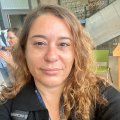
Elena Martínez Fraiz
Ibec
Dr. Elena Martínez has a PhD degree in Physics (University of Barcelona). After a first postdoctoral period at the EPFL (Lausanne, Switzerland), she moved back to Spain with a Ramon y Cajal grant. At her new position at the Parc Científic de Barcelona, she pioneered at the national level techniques such as the Focused Ion Beam/SEM characterization of cell/material interfaces and developed original strategies for surface micro and nanopatterning for cell culture and biosensors. Later, as Group Leader at the Institute for Bioengineering of Barcelona, she transitioned to develop new technologies for the microfabrication on soft materials that mimic the extracellular matrix of soft tissues with the aim of creating new tissue engineered models that could be used in biomedical applications. In the last 10 years, she has been working in developing new cardiac, intestinal, skin and vascular engineered tissues. To that aim, her lab has been working on new bioprinting techniques, bioinks, bioreactors and microfluidic applications, which she has combined with primary cells and organoids for a better representation of the tissues.
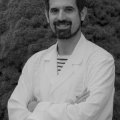
Manuel Mazo Vega
Universidad de Navarra
A Biochemist by training I am born and bred in Pamplona. My expertise was tilted to stem cell biology during my PhD and tissue engineering in my postdoc. My PhD (completed in 2009) was centred on the application of adult stem cells on animal models of myocardial infarction. I then spent 3 years in the same group upscaling the therapy to a clinically-relevant model of infarction in pig, whilst deriving our fist human induced pluripotent stem cell (hiPSC) lines. Afterwards, I obtained funding for a 4-year postdoc at Imperial College London, under the supervision of Prof Molly Stevens, where I gained significant experience in tissue engineering and materials, in a highly interdisciplinary environment. In 2017 I came back to Pamplona, where in 2018 I started my research group. In these last years, I have settled and established a strongly-collaborative research line, aiming to find solutions for biomedical problems through the application of cellular and biofabrication technology. My team specialised in using hiPSC-derived phenotypes and biofabrication technologies to build human myocardial tissues for therapeutic and modelling applications, with an special emphasis in cardio-oncology and transthyretin amyloid cardiomyopathy.

José Muñoz
Universitat Politècnica de Catalunya
Jose Muñoz is a full professor at the department of mathematics of Universitat Politècnica de Catalunya (UPC). He studied Mechanical Engineering at UPC and École Centrale Paris (ECP) and completed his PhD at Imperial College London in 2004. After a post-doctoral year at King's College London, he became lecturer at UPC, where he has remained since. He has been visiting lecturer at ECP (France), University of Newcastle (Australia) and Wisconsin-Madison (USA). His research interests are focused in the design of numerical methods for the analysis of the stability of materials, the modelling of contact problems, and elastodynamics, with special emphasis on the modelling of cell and tissue mechanics in developmental biology. He is currently working on the numerical solution of inverse problems and optimal control for studying worm locomotion, embryonic heart growth, and general morphogenesis.

Jennifer Patterson
IMDEA Materials Institute
Jennifer Patterson is a researcher and leader of the Biomaterials and Regenerative Medicine Group at IMDEA Materials Institute (Madrid, Spain). She received a bachelor’s degree in chemical engineering from Princeton University (USA) and completed a PhD in bioengineering at the University of Washington (USA) in 2007. She went on to perform postdoctoral research in the group of Prof. Jeffrey Hubbell at EPFL (Switzerland), supported by a fellowship from the Whitaker International Program. Throughout her career, she has worked in academia and industry, including positions at the start-up Therics, Inc. (USA), the first company to apply 3D printing technology in the field of tissue engineering, and as an assistant professor at KU Leuven (Belgium). On the one hand, her research interests include the development of new materials for medical applications with a focus on hydrogels. She works with synthetic hydrogels to enhance their biomimetic and mechanical properties, for example, through peptide functionalization or small molecule self-assembly. On the other hand, she aims to apply these materials for tissue regeneration, with a focus on tissues like the heart, skin, cartilage, and bone.

Daniel Rodriguez Rius
Universitat Politècnica de Catalunya (Barcelona-TECH)

Virginia Saez Martínez
Precios matrícula
(*) Para beneficiarse de la tarifa reducida como estudiante de grado o máster se requiere realizar una solicitud previa (adjuntando el carnet de estudiante vigente o una carta firmada por su supervisor/a) a la siguiente dirección: sibb2025donostia@gmail.com
| Matrícula | Hasta 10-10-2025 | Hasta 28-10-2025 |
|---|---|---|
| 350,00 EUR | 400,00 EUR | |
| 250,00 EUR | 300,00 EUR | |
| 50,00 EUR | 50,00 EUR | |
| 0 EUR | 0 EUR |
Lugar
Palacio Miramar
Pº de Miraconcha nº 48. Donostia / San Sebastián
Gipuzkoa
Palacio Miramar
Pº de Miraconcha nº 48. Donostia / San Sebastián
Gipuzkoa
